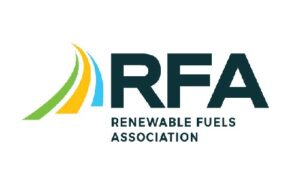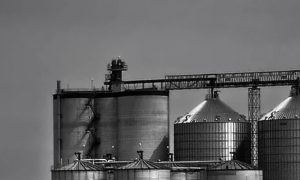Australia’s 2024-2025 Budget Includes Support For SAF, Renewable Hydrogen

Australia’s 2024-2025 budget, totaling $22.7 billion, emphasizes net-zero technology commercialization. With $3.2 billion allocated to the Australian Renewable Energy Agency, focus lies on sustainable aviation fuel (SAF) and renewable hydrogen. A $1.7 billion Innovation Fund aims at innovative tech deployment, while a $32.2 million Guarantee of Origin scheme boosts renewable hydrogen. The budget also includes a $2/kg renewable hydrogen production incentive and support for Australia’s National Hydrogen Strategy.
The Australian government on May 14 released its $22.7 billion 2024-2025 budget. The plan, in part, includes provisions that aim to support the commercialization of net-zero technologies, such as sustainable aviation fuel (SAF) and renewable hydrogen.
Information released by the office of Australia Prime Minister Anthony Albanese indicates the budget allocates $3.2 billion over the next decade to the Australian Renewable Energy Agency to support the commercialization of technologies that are critical to net-zero, including a new $1.7 billion Future Made in Australia Innovation Fund for the deployment of innovative technologies and facilities linked to priority sectors, such as low-carbon liquid fuels, green metals and batteries.
The budget provides $32.2 million to fast-track the initial phase of the Guarantee of Origin scheme focused on renewable hydrogen in 2024–‘25, before expanding the scheme to accredit the emissions content of green metals and low carbon liquid fuels. According to the government of Australia, the Guarantee of Origin scheme is a voluntary program to track and verify emissions associated with an eligible product, such as hydrogen. The scheme provides for the generation of a digital certificate that travels through the supply chain, capturing data on where the product was made, what it was made from, and how it was transported. This includes data on greenhouse gas (GHG) emissions.
Other parts of the plan address the potential for low-carbon fuel mandates. The government has allocated $1.5 million for a regulatory impact analysis of the costs and benefits of mandates or other measures for low-carbon liquid fuels.
The budget also implements a hydrogen production tax incentive that provides $2 per kilogram of renewable hydrogen produced between 2027-’28 and 2039-’40. The incentive is available for up to 10 years per project, with an estimated cost to the budget of $6.7 billion over the medium term. Also in support of hydrogen, the budget includes $1.3 billion over the next decade for the Hydrogen Headstart program to provide additional support to early movers investing in the industry’s development and $17.1 million to implement Australia’s National Hydrogen Strategy.
Australia’s Tourism and Transport Forum has applauded the budget’s inclusion of measures that could support SAF development. “Australia has the potential to become a world-leading supplier of Sustainable Aviation Fuel, with enough feedstock to replace 90% of local jet fuel with SAF by 2050,” said Margy Osmond, CEO of TTF. “We applaud the Federal Government for making real progress and giving focus to this issue, initially through the establishment of the Jet Zero Council and by collaborating with industry. Tonight’s announcement sends a strong signal to the industry and investors that the Federal Government is committed to helping develop a local SAF industry here in Australia.”
Australia-based IFM Investors also welcomed SAF-related provisions of the budget. “Global demand for SAF continues to rise and as the aviation sector looks to reduce carbon emissions, an opportunity exists for Australia to make the most of its comparative advantages in agriculture and land availability and become a global leader in SAF production,” the group said in a statement. “IFM Investors, with the support of its industry superannuation fund owners, is partnering with agribusiness GrainCorp to advance the establishment of a local SAF industry. We see the potential to invest more than A$1 billion to help support the development of local SAF production, and that figure could grow over time. But we know that this opportunity will only be taken if industry and government work together to achieve the right policy settings. The Australian Government’s budget demonstrates their commitment to a locally produced SAF industry and we look forward to collaborating with government and other key Australian partners to make a local SAF industry a reality.”
Source Link: https://ethanolproducer.com/articles/australias-2024-2025-budget-includes-support-for-saf-renewable-hydrogen
















